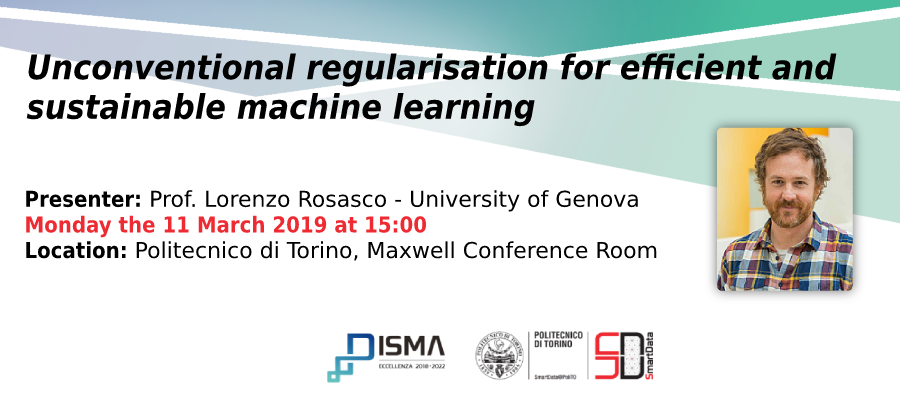
Presenter: Lorenzo Rosasco – Associate Professor at the University of Genova
Monday the 11 March 2019 at 15:00
Location: Politecnico di Torino, DET, Conference room Maxwell


Abstract
Classic algorithm design is based on penalising or imposing explicit constraints to an empirical, objective function, which is eventually optimised. In practice, however, a number of different algorithmic solutions are employed. Their effect on final performance is hard to assess a priori and typically done empirically.
In this talk, Prof. Rosasco will consider a linear least squares framework and will take a regularisation perspective to understand the effect of two commonly used ideas: sketching and iterative optimisation. This analysis will highlight the role and the interplay of different algorithmic choices, including training time, step and mini-batch size, and the choice of sketching, among others. Indeed, one can view all these choices as controlling a form of “algorithmic regularisation”‘. The obtained results provide new and practical guidelines for algorithm design. They suggest that optimal statistical accuracy can be achieved while dramatically improving computational efficiency. Theoretical findings will be illustrated in the context of large scale kernel methods, where Prof. Rosasco and co-authors developed the first solvers able to scale to millions of training points.
Biography
Lorenzo Rosasco is an associate professor at the University of Genova. He is also Visiting professor at the Massachusetts Institute of Technology (MIT) and external collaborator at the Italian Technological Institute (IIT). He coordinates Laboratory for Computational and Statistical Learning focused on theory, algorithms and application of machine learning. He received his PhD in 2006 from the University of Genova, after being a visiting student at the Center for Biological and Computational Learning at MIT, the Toyota Technological Institute at Chicago (TTI-Chicago) and the Johann Radon Institute for Computational and Applied Mathematics. Between 2006 a and 2009 he has been a postdoctoral fellow at the Center for Biological and Computational Learning at MIT. He is a recipient of many grants, including a FIRB and an ERC consolidator.
This seminar is a joint event with SmartData@PoliTO and DISMA
